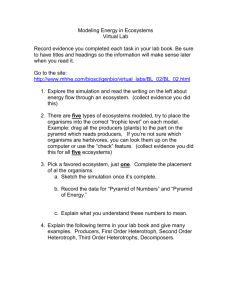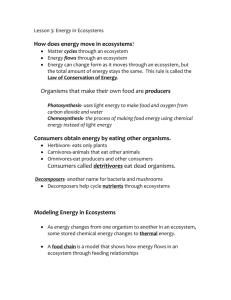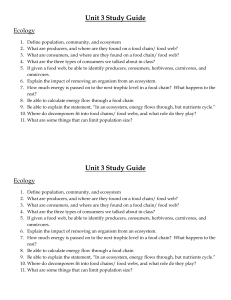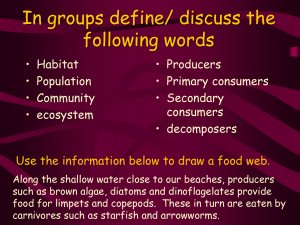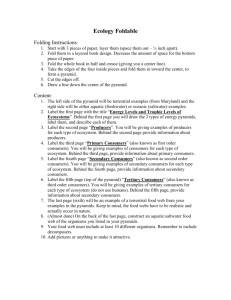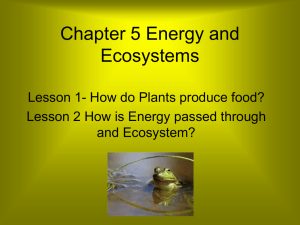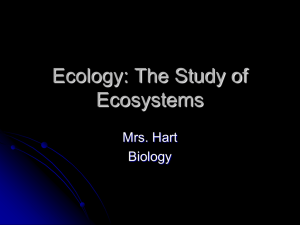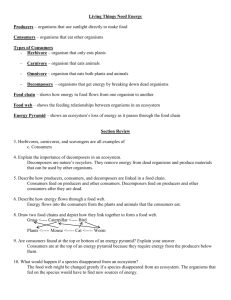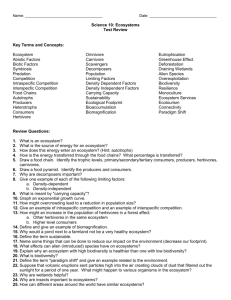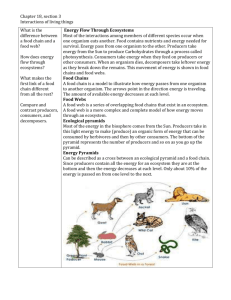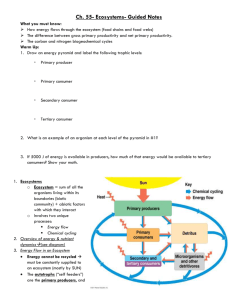Ecosystem Dynamics Worksheet: Food Chains & Pyramids
advertisement
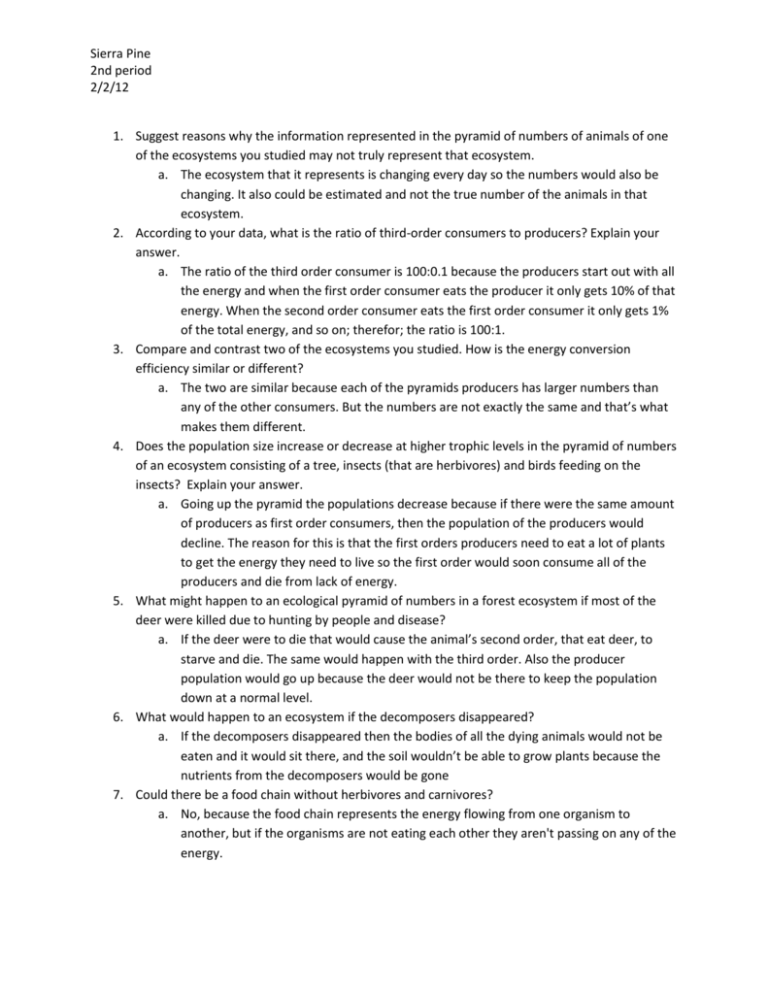
Sierra Pine 2nd period 2/2/12 1. Suggest reasons why the information represented in the pyramid of numbers of animals of one of the ecosystems you studied may not truly represent that ecosystem. a. The ecosystem that it represents is changing every day so the numbers would also be changing. It also could be estimated and not the true number of the animals in that ecosystem. 2. According to your data, what is the ratio of third-order consumers to producers? Explain your answer. a. The ratio of the third order consumer is 100:0.1 because the producers start out with all the energy and when the first order consumer eats the producer it only gets 10% of that energy. When the second order consumer eats the first order consumer it only gets 1% of the total energy, and so on; therefor; the ratio is 100:1. 3. Compare and contrast two of the ecosystems you studied. How is the energy conversion efficiency similar or different? a. The two are similar because each of the pyramids producers has larger numbers than any of the other consumers. But the numbers are not exactly the same and that’s what makes them different. 4. Does the population size increase or decrease at higher trophic levels in the pyramid of numbers of an ecosystem consisting of a tree, insects (that are herbivores) and birds feeding on the insects? Explain your answer. a. Going up the pyramid the populations decrease because if there were the same amount of producers as first order consumers, then the population of the producers would decline. The reason for this is that the first orders producers need to eat a lot of plants to get the energy they need to live so the first order would soon consume all of the producers and die from lack of energy. 5. What might happen to an ecological pyramid of numbers in a forest ecosystem if most of the deer were killed due to hunting by people and disease? a. If the deer were to die that would cause the animal’s second order, that eat deer, to starve and die. The same would happen with the third order. Also the producer population would go up because the deer would not be there to keep the population down at a normal level. 6. What would happen to an ecosystem if the decomposers disappeared? a. If the decomposers disappeared then the bodies of all the dying animals would not be eaten and it would sit there, and the soil wouldn’t be able to grow plants because the nutrients from the decomposers would be gone 7. Could there be a food chain without herbivores and carnivores? a. No, because the food chain represents the energy flowing from one organism to another, but if the organisms are not eating each other they aren't passing on any of the energy.
